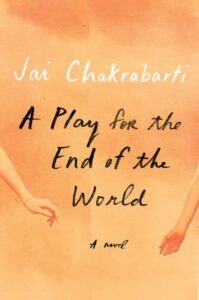The following first appeared in Lit Hub’s Craft of Writing newsletter—sign up here.
When I was 14 I shaved my head, stayed in a room alone for three days, and then dipped in the cool morning waters of the Ganges. It was all part of a common Indian ritual, a rite of passage between childhood and adolescence. The alone-in-a-room-for-three-days part was meant to be a time for contemplation and meditation, but I took it as an opportunity to read David Copperfield cover to cover. “Whether I shall turn out to be the hero of my own life, or whether that station will be held by anybody else, these pages must show,” wrote Charles Dickens in the voice of David Copperfield, and as a teenager searching for my own story, I was enraptured.
I was also trying to write my first novel. There’s little that I remember about this manuscript other than it served as a mimicry for the writers I was reading at the time — Dickens and a few Bengali authors who wrote similarly long and complicated plot lines — but I still remember the feeling of being stuck. I remember that feeling as viscerally as having my head shaved.
In that room where I was alone I had nothing except a book, so I couldn’t write. I wasn’t even supposed to read, but my parents had given me a special dispensation. “One book,” they’d said.
What I learned during that time of morning-to-night reading was that my mind was capable of being reset, but that it took an intentional departure from my rhythm that had been so aimed at producing — a caesura for the soul.
Kolkata, the city of my birth, is dense with traffic. Scooters, so-called “mini buses,” auto rickshaws, pedestrians in full sprint. Arriving at the banks of the Ganges before dawn is like watching the city just stirring awake from sleep. You see the sweet shop vendors piling confections in their displays, the street sweepers passing by with brooms, and the wild dogs stretching themselves after a night of slumber.
It’s not a river I was looking forward to dipping in. Not only the ablutions of thousands, but there’s the runoff from factory waste to worry about. There are prayer offerings bobbing in the water and the devoted deep in prayer. Still, there’s a sense of magic. There’s the mystery of the ritual, the possibility that I might be transformed, that I might somehow become unstuck.
Nowadays when I start to feel stuck in my writing I often ask myself two questions. Firstly, have I taken the right kind of pause? And, have I invited the constraints that will help me wade out of the mud?
When I was writing A Play for the End of the World I experienced moments where I could no longer see how the individual stitches led to the larger tapestry of the novel. I remember one moment in particular when I felt I had no business trying to be a writer: it was right after my son had just been born. I’d given myself a deadline to finish a revision, but I was hardly sleeping. My typical time for writing, that early space in the morning when only the birds and cleaning crews are awake, had been consumed. Most of the time there was at least one more little being awake for the sunrise.
Those first months, after trying to plow through, I took a long pause. For months, all I did when I had time in that blur of early parenthood was to copy down lines of poetry into my journal. Olga Brumas, Rabindranath Tagore, Audrey Lorde, Galway Kinnell. I remember a particular stanza of Tagore’s from Geetanjali that I must have translated a dozen different ways to suit whatever spectrum of joyous or defeated state of parenthood I was living through.
It was only when I was sleeping through the night again that I returned to the writing table, sated with the words of the poets I’d been copying down or translating. This time, I wanted to give myself constraints during the novel’s revision. I needed to whittle away the infinite possibilities of the next sentence into the size of a small shell and then to a stretch of reef and then finally a dock that allowed for diving into the wreck. In the case of A Play for the End of the World, this meant focusing in on one small aspect of the story. Doing so enough times allowed me to walk out of the dark room of being stuck and back out into the world.
*
Read more on finding new inspiration:
Stan Parish on the inspirational power of electronic music.
Rob Hart on writing himself out of a rut.
Robert Anthony Siegel on overcoming writer’s block by helping another writer.
Jeremy DeSilva on how moving helps us think.
*
5 Books for Refocusing the Mind
RECOMMENDED BY JAI CHAKRABARTI
Michael Ondaatje, Coming Through Slaughter
Kimiko Hahn, The Narrow Road to the Interior
Marilynne Robinson, Gilead
Rabindranath Tagore, Selected Stories of Rabindranath Tagore
Charles Dickens, Bleak House
__________________________________

A Play for the End of the World is available via Knopf.
Jai Chakrabarti
Jai Chakrabarti’s short fiction has appeared in numerous journals and has been anthologized in The O. Henry Prize Stories, The Best American Short Stories, and awarded a Pushcart Prize. Chakrabarti was an Emerging Writer Fellow with A Public Space and received his MFA from Brooklyn College. He was born in Kolkata, India, and now splits his time between Brooklyn, NY and the Hudson Valley. A Play for the End of the World is his first novel.




















